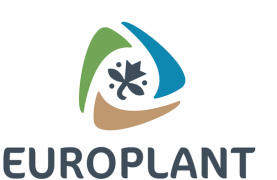Abstract
The objective of the present study was to establish whether exposure to temperatures of 55-70 °C results in eradication of the pathogen Clavibacter sepedonicus (Cs) in colonised potato tissue, in order to evaluate the efficiency of composting for disinfection of Cs-infected potato waste. Pre-sprouted potato tubers were inoculated and planted to produce Cs-colonised stem and tuber material. After incubation in temperature-controlled water baths, the infected potato tissue was analysed for the presence of culturable and pathogenic Cs. Additional experiments were performed with Cs-colonised potato stem tissue crushed and deaerated, thus simulating macerated stem tissue in the compost heap. To enable a comparison with bacterial cells that are not enclosed by their natural organic matrix, temperature treatments were applied to non-infected stem tissue crushed and deaerated, and spiked with freshly prepared Cs-suspensions. Cs settled inside colonised potato tissue, as well as Cs present as Cs-suspensions supplemented to potato tissue, was eradicated by exposure to heat, even after a treatment of 1 h at 55 °C, with the exception of one case in which the pathogen present in intact stem material escaped a treatment of 6 h at 60 °C, indicating that incidentally stems may provide niches in which the pathogen is protected against heat.















